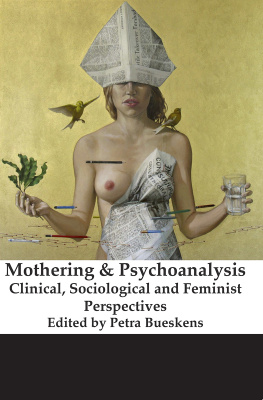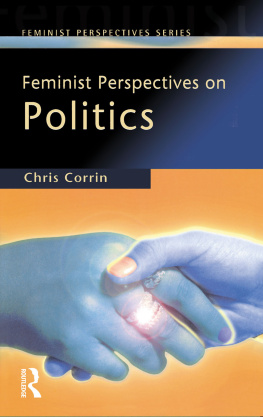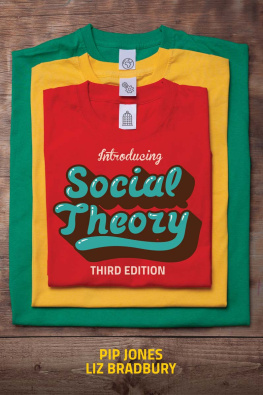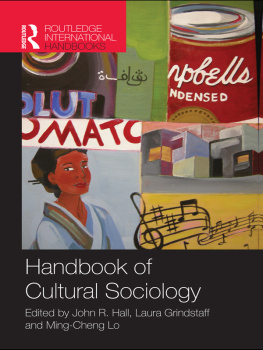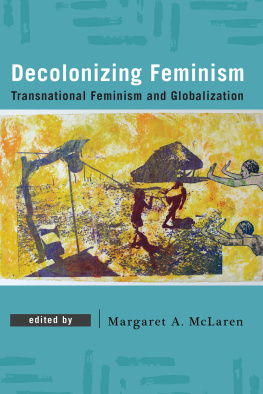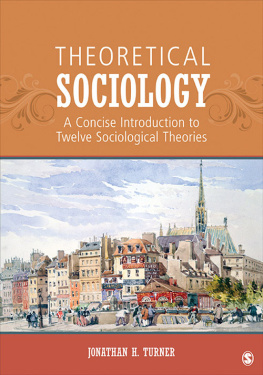AN INTRODUCTION TO SOCIOLOGY
This third edition of An Introduction to Sociology: Feminist Perspectives reaffirms the contribution of feminist perspectives and research to sociology and introduces students and readers to the wide range of feminist contributions to key areas of sociological concern. This completely revised edition includes updated and expanded theoretical and empirical material as well as two new chapters on sexuality and media culture.
The book begins with a consideration of the relationship between feminism and the sociological imagination, focusing on the feminist critique of malestream sociology. It then considers feminist sociological theory, taking account of debates and issues relating to post-feminism and post-colonialism. Various sociological themes are considered from a broad range of feminist perspectives and in the light of current feminist research, including: stratification and inequality, education, the life course, the family and the household, health, illness and caring, sexuality, crime and criminal justice, politics, the mass media and popular culture, and feminist knowledge.
The book is especially designed to be useful at an introductory level and includes:
- careful consideration of key sociological concepts
- exploration of ongoing debates within sociology
- a range of theoretical approaches
- up-to-date research from a range of international sources
- a broad range of international literature bullet-point chapter summaries
- annotated suggestions for further reading
Pamela Abbott is Director of the Centre for Equality and Diversity at Glasgow Caledonian University. Claire Wallace is Professor of Sociology at the University of Aberdeen. Melissa Tyler is a Lecturer in Organisation Studies at Loughborough University.
An Introduction to Sociology
Feminist Perspectives
Third edition
Pamela Abbott, Claire Wallace and Melissa Tyler
First published 1990
by Routledge
Second edition published 1997
This third edition published 2005
by Routledge 2 Park Square, Milton Park, Abingdon, Oxon OX14 4RN
Simultaneously published in the USA and Canada
by Routledge
270 Madison Ave, New York, NY 10016
This edition published in the Taylor & Francis e-Library, 2006
To purchase your own copy of this or any of Taylor & Francis or Routledges collection of thousands of eBooks please go to www.eBookstore.tandf.co.uk.
Routledge is an imprint of the Taylor & Francis Group
1997, 2003 Pamela Abbott and Claire Wallace
2005 Pamela Abbott, Claire Wallace and Melissa Tyler
All rights reserved. No part of this book may be reprinted or reproduced or utilised in any form or by any electronic, mechanical, or other means, now known or hereafter invented, including photocopying and recording, or in any information storage or retrieval system, without permission in writing from the publishers.
British Library Cataloguing in Publication Data
A catalogue record for this book is available from the British Library
Library of Congress Cataloging in Publication Data
A catalog record for this book has been requested
ISBN-415312582 (hbk)
ISBN-415312590 (pbk)
Tables
Sexgender order
Registrar Generals scale
National Statistics Socio-economic Classification (NS-SEC)
Economic activity status of disabled people by sex, UK, 2001
Obtainment of 2+ A level passes or 3+ SCE Highers by sex, UK, 2000/
Full- and part-time enrolments in higher education by sex, UK, 1970/11992/3
Achievements at GCSE/GNVQ by ethnicity and sex, UK, 2003
Cohabitation by sex and relationship type, UK, 2002
Western European women never married by the age of 4549, c.1900 and 2000
Family status of women in the EU, 1996
Family type and marital status of lone mothers, UK, 19712001
Rubins hierarchy of sex
Attitudes to sexual relations, 1998
Occupational segmentation of employees and self-employed (aged 16 and over), UK, 2003
Part-time employees (aged 16 and over), UK, 2003
Male and female employees working full- or part-time, UK, 2003
Part-time employees (aged 16 and over) by reason for working part-time, UK, 2003
Gender pay gap, 2003
Employment in selected professional and associated professional occupations, UK, 2000
Female share of managers, UK, 19902001
Persons sentenced or cautioned for indictable offences by sex and age, in England and Wales, 2002
Offenders found guilty of indictable offences at all courts by type of offence, in England and Wales, 2002
Selected sentences awarded by sex, 2002
Proportion sentenced to immediate custody and average term awarded, by sex and court, 2002
Offenders found guilty at all courts by sex and type of offence, in England and Wales, 19772001
Self-report of delinquent acts and offences committed by girls in research by Shaklady Smith (1978)
Fear of crime: sex, age and type of crime
Feeling unsafe at night by country
Objective risk of violent crime selected age ranges
Preface
In feminist terms the twentieth century began, in Britain at least, with the suffragettes and ended with the Spice Girls and the popular perception, as Germaine Greer wryly observed, that feminism has served its purpose and should now eff off (1999, p. 5). During the intervening period, feminism achieved profound success, improving the social, political, cultural and economic position of women in a whole range of ways. At the same time, feminist theory, particularly in the last three decades or so, has made a significant contribution to rethinking many aspects of the ways in which we make sense of society. Yet, many post-feminists consider that feminism has now achieved its aims and is therefore no longer relevant (or welcome) politically or theoretically, given the diversity of womanhood; or that feminism has simply gone too far towards benefiting women, resulting in a gender backlash. Others claim that feminism has not gone far enough in addressing social inequalities, and that those gains that have been made have focused too specifically on the needs of middle-class, white professional women living in the West. In many respects therefore, feminism (including feminist sociology) is currently engaged in something of a stock-taking exercise, reflecting critically on questions such as how to address the diverse experiences of women whilst maintaining some notion of commonality, at the same time as examining the relevance of the feminist project at the beginning of the twenty-first century.
For us, the relevance of feminism as both a political and a theoretical commitment, and its centrality to sociology as a critical project, becomes immediately apparent when we step outside of these debates and locate feminism and its relationship to sociology within the broader social totality.
As Goran Therborn (2004, p. 17) notes in his discussion of patriarchy throughout the course of the twentieth century, in the beginning of our story all significant societies were clearly patriarchal. However, in many societies, he argues, patriarchy was forced into retreat during the last century, a process he describes as de-patriarchalization (p. 73). In most countries, the legal rights of women and girls have been extended, and the expansion of education and paid work has increased womens autonomy in many respects. Dramatic socio-economic, political and cultural changes have undermined the authority of individual husbands and fathers, and of mens power over women as a group. Yet this process of de-patriarchalization has by no means been even. As Therborn puts it, the most important feature of the twentieth-century change of patriarchy is not its universal tendency. It is the variation in outcome as well as in timing (p. 129). This means that there are many areas of the world where patriarchy is still well entrenched; South and West Asia, North and sub-Saharan Africa, are notable examples. As he puts it, in these areas of the world



